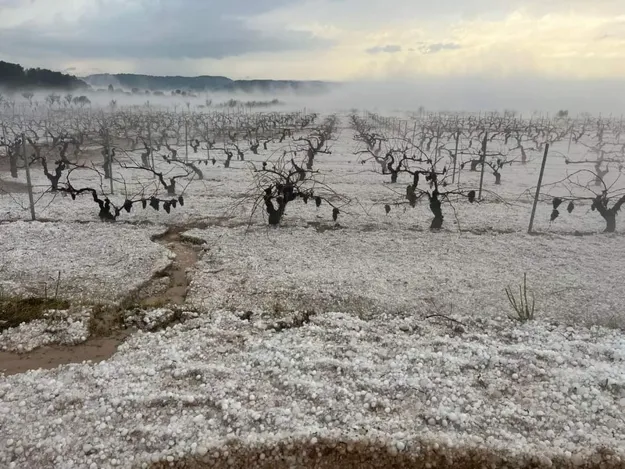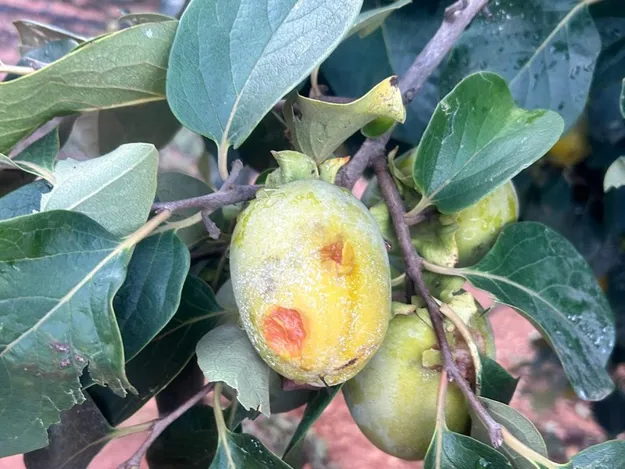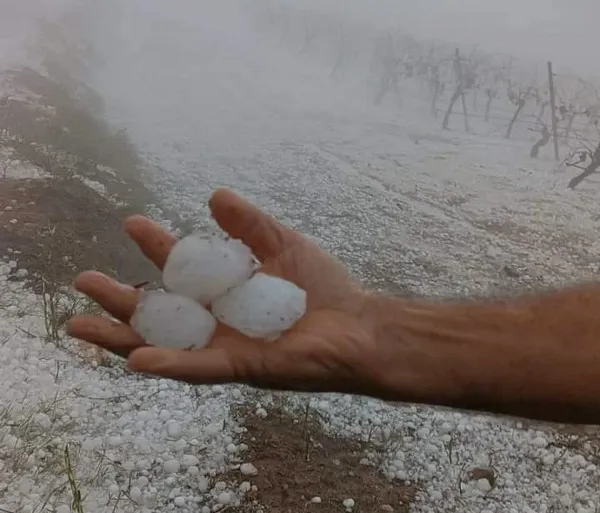La Unió Llauradora stated that Sunday's hailstorms, rain, and winds had affected more than 22,000 hectares of crops and that, according to an initial emergency assessment, caused an estimated more than 43 million euro in losses.

"The damages are mainly focused on the regions of Utiel-Requena and Camp de Túria, but there were also damages in Ribera Alta, Ribera Baixa, Camp de Morvedre, La Serranía, and La Costera, as far as the province of Valencia is concerned, as well as on the southern coast of the region of Plana Baixa."
"The main crop affected was citrus with 43% of the losses, followed by persimmon with 20% and wine grapes with 16%. It's worth noting that approximately one-third of the grapes expected for this season in the affected area of the municipality of Requena and its villages had already been harvested, which helped minimize the damage. Other crops affected are olive groves with 10%, ornamental crops and nurseries with 8%, and vegetables with 7%."

"Producers of most crops already expected a decrease in their harvest because of the adverse weather of the last months. This weekend's storm further decreases their expectations and things are expected to get worse in the middle of this week as there is a forecast of a new DANA."
"Producers are not only facing direct losses, as these events also affect the productions of coming years. In addition, the strong winds and rains caused damages in infrastructures, trees to fall, and other affectations."

"The percentages of damage have been very variable. There are areas in the regions of Camp de Túria and Utiel-Requena where 100% of the crops will be affected. Not only was this year's harvest affected, but the wood is very affected and even uprooted, so the damage will last a few years. There are also areas where it had hailed last week, and even though now the size of the hail was smaller, the damage it caused will have to be compounded with the damage caused by the previous hail."
"In the places that were not affected by hail, the rains had a positive effect. They served to alleviate water stress in rain-fed and irrigated crops, allowing producers to have some savings on irrigation, they helped clean the trees from possible pests, and recharged the already depleted aquifers and reservoirs."
For more information:
Unió Llauradora
https://launio.org
